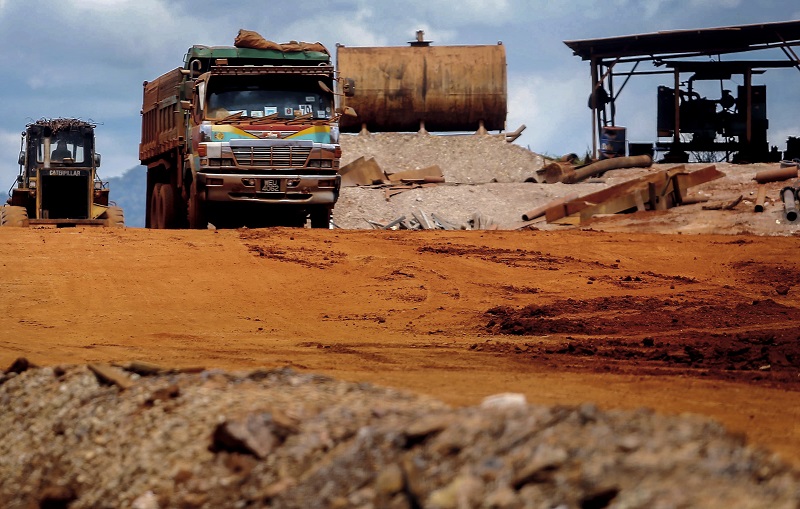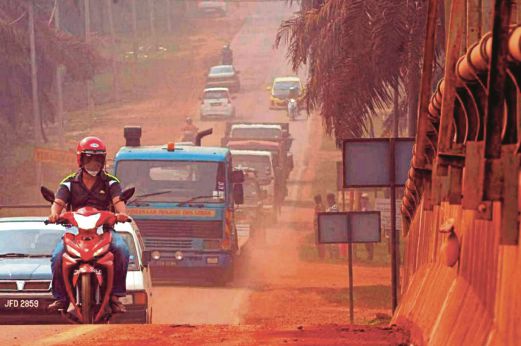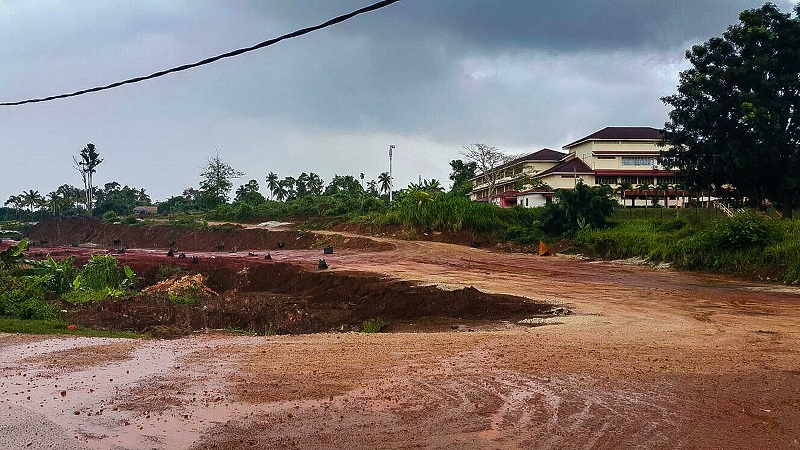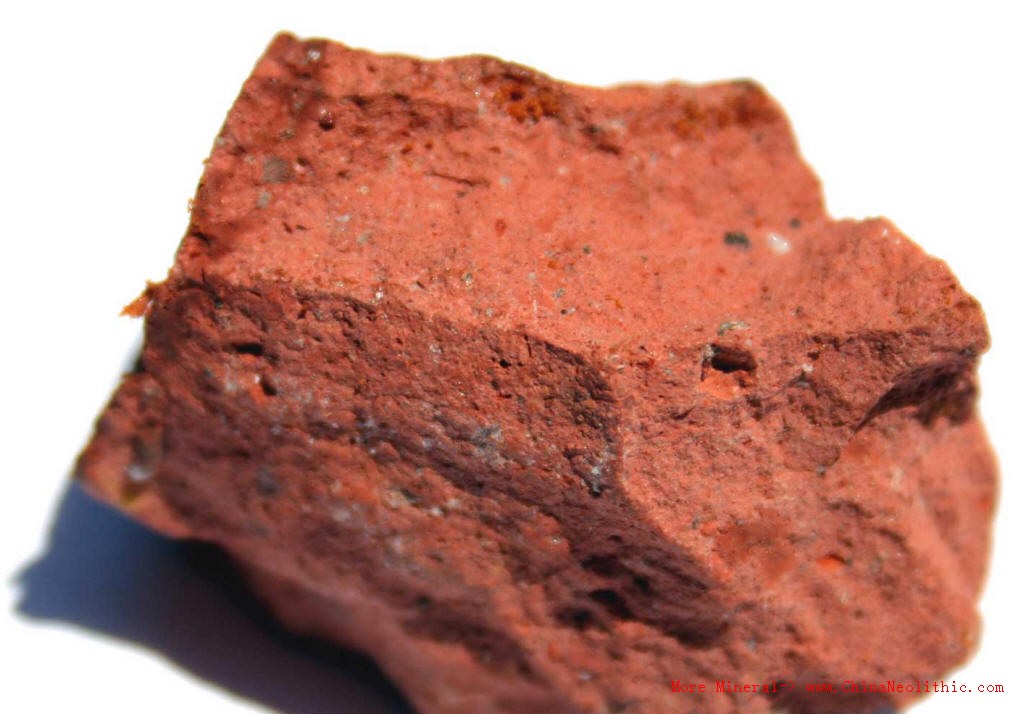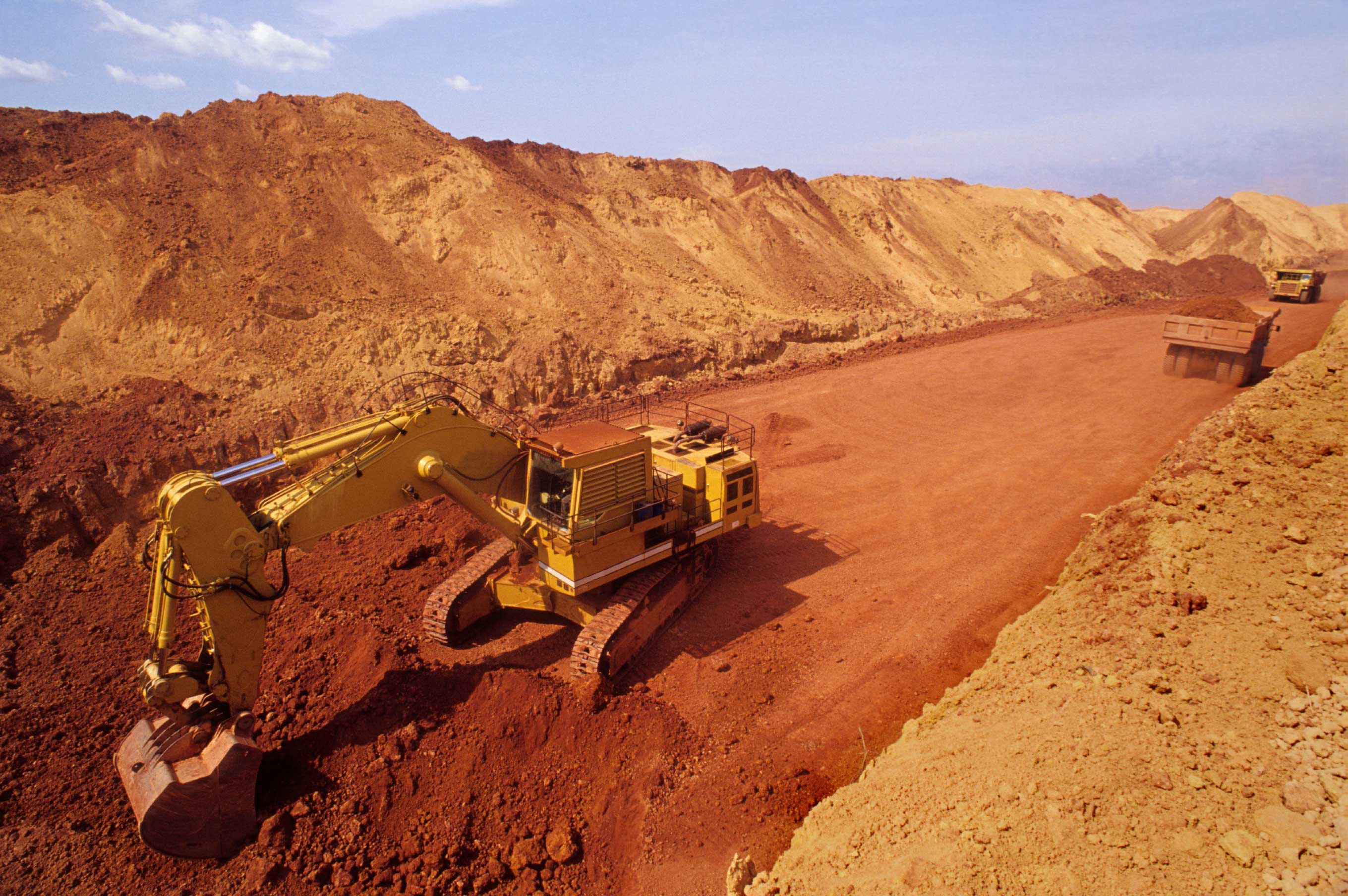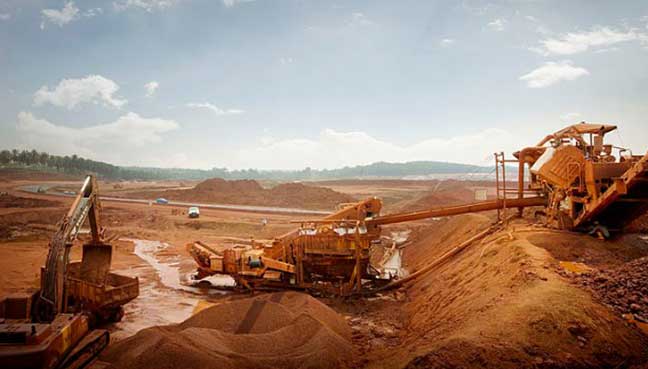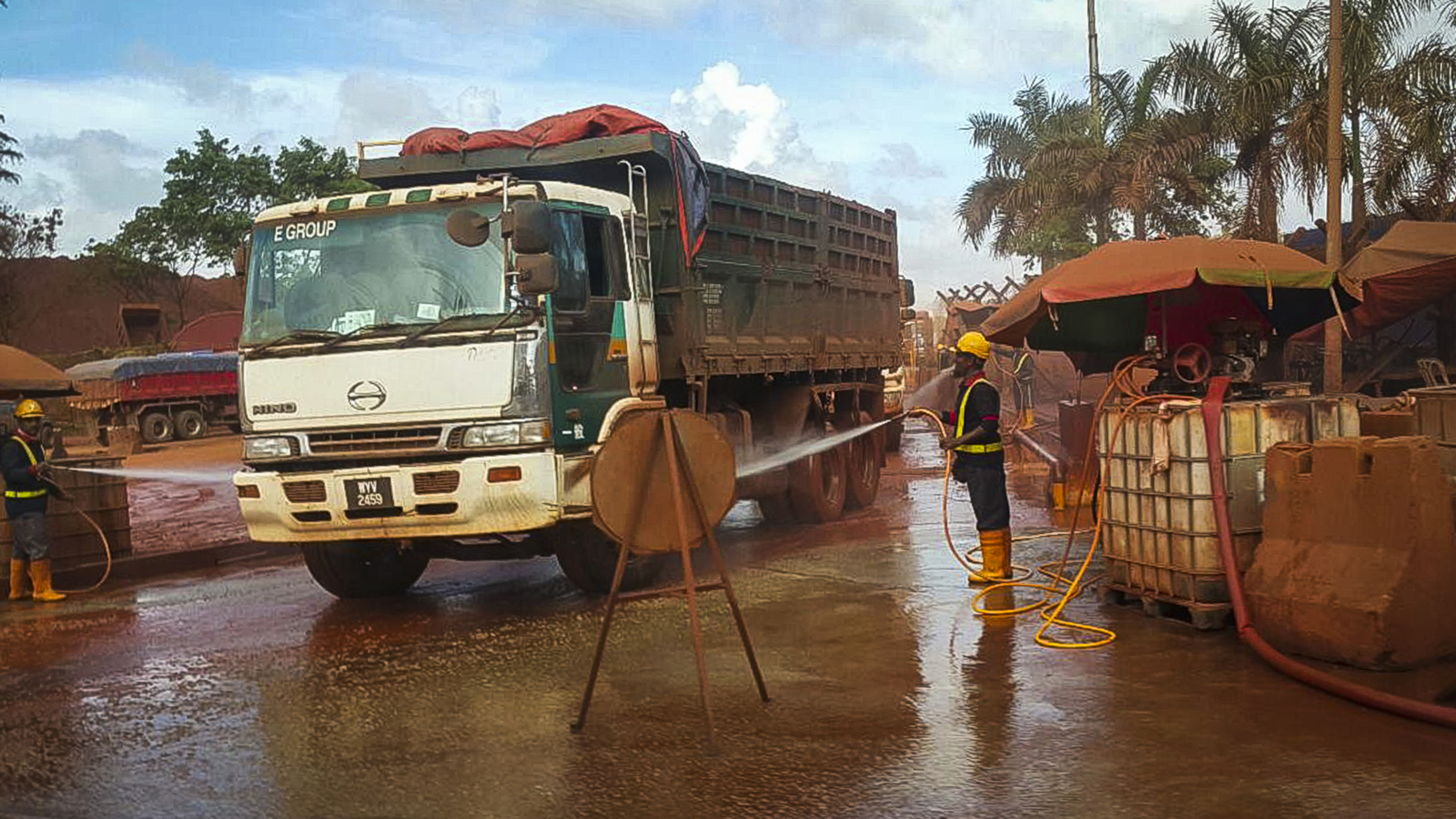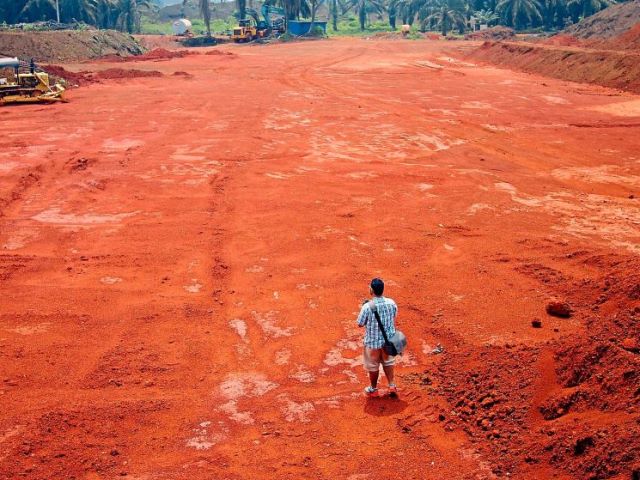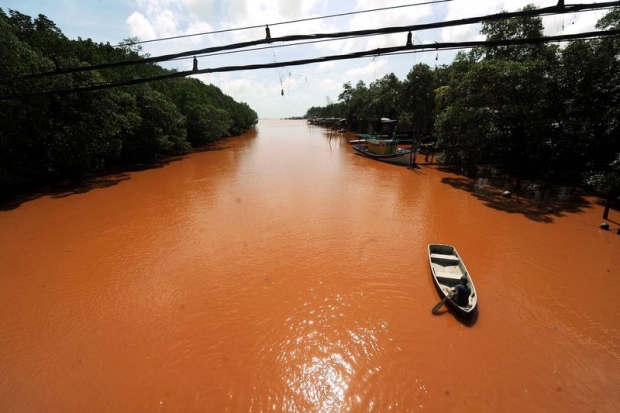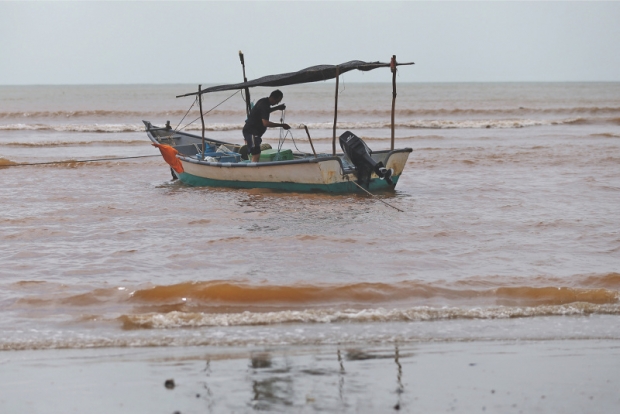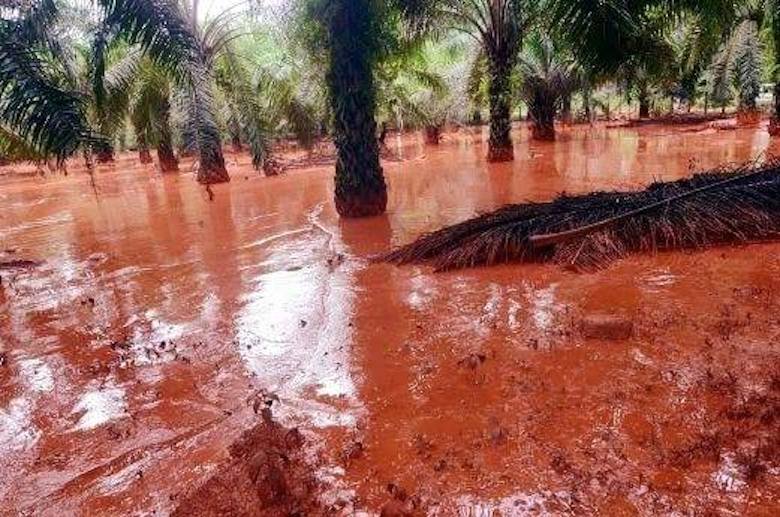Paralysis, Arsenic Poisoning And Shocking Facts About Bauxite Mining Malaysians Must Know
In 2015 alone, Malaysia has exported more than 20 million tonnes of bauxite to China.
In their efforts to live up to the increasing demands for bauxite, Pahang's move to hike up its revenue-rich mining activity has led to an alarmingly high, widespread pollution in the state
Media on Wednesday, 30 December 2015, showed images of red seas and rivers near the state capital of Kuantan, the center of the industry and the location of a port from which much of the bauxite is shipped.
Reporters said the sea were discolored along a 15 km (9 mile) stretch of coast."Of course the federal government and state government are concerned," Natural Resources and Environment Minister Wan Junaidi Tuanku Jaafar told Reuters.
Residents have complained of contamination of water sources and the destruction of their environment as mining operations remove the red earth rich in bauxite.
Wondering why Pahang looks like the red land of Mars suddenly? Here's everything you need to know about the current bauxite mining situation in Pahang:
An image of the land around a primary school in Bukit Goh that is covered is red due to the extensive bauxite mining in the area
Image via The Malaysian InsiderWhat is bauxite?
Being the world's main source of aluminium, bauxite is a rock that contains aluminium hydroxide which is the main ore of aluminium.
Aluminium is typically used in everyday household items, ranging from kitchenware, cars, packaging, industrial machinery and transportation.
Bauxite mining and exports in Malaysia:
Until recently, bauxite was just a minor part of Malaysia's mineral exports industry.
A report by Malaysian Minerals, states that there was only one major bauxite mine in Johor that was producing about 219,888 tonnes of bauxite worth RM17.59 million, by the year 2013.
According to Bloomberg Business, Malaysia has produced a whopping 208,770 tonnes of bauxite back in 2013, compared to a meager 2,040 tonnes produced in the year 2004.
Following Indonesia's decision to ban bauxite exports in 2014, Kuantan, quickly turned into Malaysia's key exporter of bauxite, mainly to China, exporting over 20 million tonnes in the year 2015 alone.
Why did Pahang suddenly hike up the production and export of bauxite?
Demand from China for the aluminum ingredient has fed a rapid rise in bauxite mining in the third-largest state of Pahang, in the east of peninsular Malaysia, and concern is growing about the impact on the environment.
The change came after Indonesia banned bauxite exports in early 2014, forcing China, the world's top aluminum producer, to seek supplies elsewhere.
In just three years, Malaysia has transformed itself from a modest supplier to the top source of the material for China.
In the first 11 months of 2015, Malaysia shipped more than 20 million tonnes of bauxite to China, up nearly 700 percent on the previous year. In 2013, it shipped just 162,000 tonnes.
According to Pahang's Menteri Besar Datuk Seri Adnan Yaakob, the east cost state has the potential to earn up to RM24 million per month, especially following the renewed rates for bauxite production, starting this month, January 2016
He said low-income earners, such as lorry drivers, could earn up to RM8,000 a month by transporting bauxite from mines to collection points.
“The money is to feed their children and give them proper education. There are hundreds of them (lorry drivers)," he added.
The revised rate will see RM8 for every one tonne of bauxite instead of the present rate of RM4. “I understand that three million metric tonnes of bauxite are produced every month here.
In August, it was reported that, the state government collected RM37 million from bauxite production for this year.
If it is a lucrative industry, then why are we fighting against this sudden boom in the industry that is bringing in a great deal of revenue?
Despite its proven profitability, bauxite mining in Pahang has terribly affected the environment and its people, with some scientists even claiming that the environmental pollution can be irreversible
A team of scientists has warned that damage to the environment from indiscriminate and poorly regulated mining of bauxite may be so severe that the ecosystem may never recover, the New Straits Times reported yesterday.
The 14-page report by the group of scientists also touched extensively upon how transportation of the resource posed a public health hazard, and was causing irreversible environmental damage.
The experts underlined the risk of heavy metals extracted during mining operations - including arsenic, mercury and aluminium - and other pollutants entering rivers during rains, which could hurt aquatic life. The problem was exacerbated by rivers being barricaded and dammed up to facilitate washing of the ore, the New Straits Times reported.
"While the present situation is disturbing enough, its longer term persistence would mean that there would be no scope for the affected waterways to return to their original state. The changes would be so extreme that the fundamental habitat qualities that support our local biodiversity would be lost and we would be left with a degraded ecosystem," they cautioned.
It isn't just the aquatic life and air quality that will be badly compromised; the combined effects of these damages will contribute to ghastly health problems for Malaysians, including respiratory, neurological, and kidney disorders and damages
Dr Syed Abdul Khaliq Syed Abdul Hamid, a paediatrician at Kuantan Hospital, said he was seeing worsening cases of asthma in more than 10 children living near bauxite mining areas.
“I have many patients in bauxite areas with very poorly controlled asthma. They can’t sleep at night because of difficulty in breathing, and this is affecting their school and development,” he said.
Dr Syed Khalid said long-term exposure to bauxite could have an impact on the kidneys because of heavy metals, such as aluminium and arsenic.
“They are poisonous after long-term exposure. The effect on the on kidneys can take place only after many years,” he said, adding that Kuantan residents could no longer afford to wait for action against rampant bauxite mining which is feeding aluminium production in China.
Kuantan MP Fuziah Salleh, recently revealed that the rising mercury levels that are 14 times higher than the permitted level in Sungai Kuantan, could cause paralysis, insanity and death over prolonged consumption
Kuantan MP Fuziah Salleh has long expressed concern over the problem in her constituency, and her fears have now extended to the safety of raw water supply from Sungai Pinang and Mabok, where miners wash extracted bauxite.
“The mercury level in Sungai Pinang is 14 times higher than the levels allowed, while the levels in Sungai Mabok is 10 times higher,” she told the media.
Fuziah also said these two rivers merge with Sungai Kuantan, which is the main source of raw water feeding the Semambu water treatment plant.
These are the main sources of drinking water for Kuantan folk," said the PKR MP.
A research by the New Straits Times in August 2015, on live fish samples in rivers near bauxite mining areas, exposed that the average cancer causing arsenic levels in the fishes were 101.5mg per kg.
This is more than a 100 times the legal amount of arsenic allowed by The Food Regulation 1985, which is 1mg/kg.
Public health experts have warned those here that the water sources where bauxite had seeped in were heavily contaminated with toxic chemicals, some with carcinogens.
The desperate call stemmed from the independent laboratory test results commissioned two weeks ago by the New Straits Times Probes Team on live fish samples obtained from Pantai Pengorak and Sungai Pengorak here.
In the first sample (Fish 1), the trace of arsenic was at 70.8. Fish 2 registered 93.2, while Fish 3 was at a staggering 104.5. "We don’t eat fish by the gramme. Imagine the levels of carcinogens being consumed in one serving," said a scientist assisting the Probes Team in analysing the results.
"The concentration of these heavy metals would be higher in fish that had been in the water for a longer time," he said. (The fish that were obtained as samples were only the size of a palm.) Contaminated smaller fish that are fed on by larger species would also result in increased levels of toxicity in the larger animal.
According to Reuters, in July 2015, the Pahang state government revoked the licenses of 34 bauxite mining contractors, leaving only 11 legal ones to operate to curb the growing pollution that arises from the mining activities
The state government took the step after contractors ignored multiple warnings on rampant pollution. Local residents have complained of red dust from bauxite mines contaminating the villages when lorries transport the mineral ore to the port.
Only 11 operators with permission to mine, transport and export the mineral would now be allowed to operate in the state of Pahang from Aug. 1, state news agency Bernama reported on Sunday.
However, Minister in the Prime Minister's Department Datuk Seri Shahidan Kassim stressed that the final decision to end or substantially decrease bauxite mining in Pahang lies with the state government which has the ultimate power over the uses of its land
Minister in the Prime Minister's Department Datuk Seri Shahidan Kassim
Image via The Malaysian InsiderThe federal government only had the power to state policy on the impact of mining activities on the environment, but not on land use decisions, as land was under the jurisdiction of the state, Shahidan said.
“The federal government can only make decisions in terms of the impact of bauxite on the environment, the cabinet can only recommend to the state government.
“But all the power lies with the state government, because we have to remember that the power of land ownership is under their jurisdiction,” he said when contacted today.
